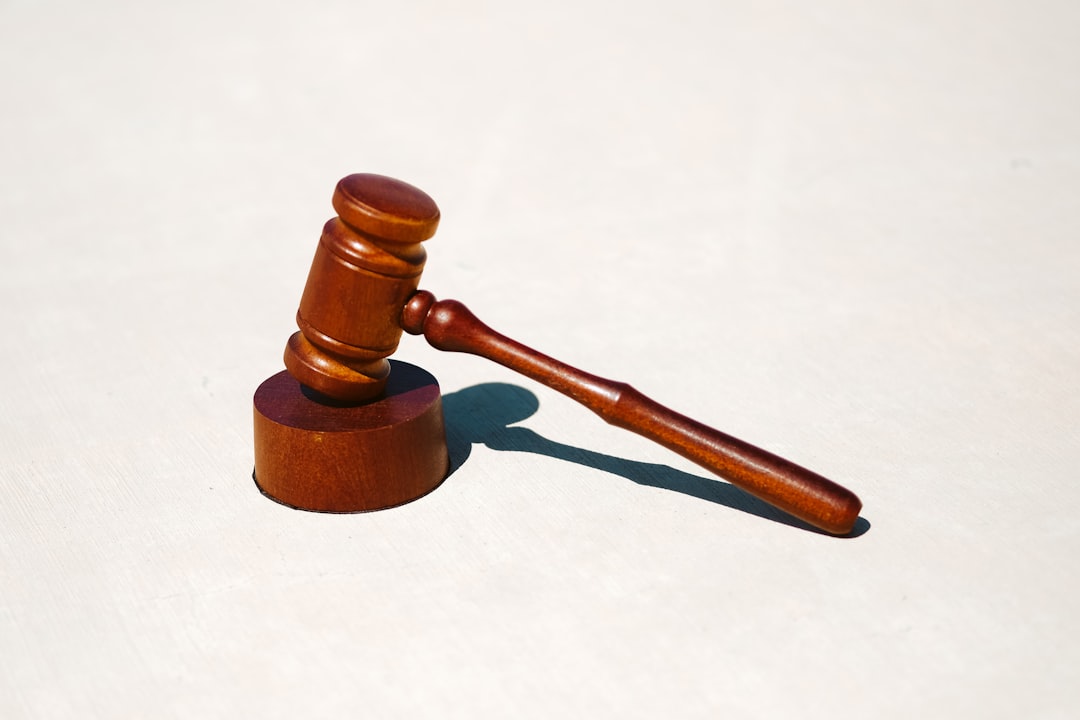Nevada residents enjoy strong protections under the state's Do Not Call Law, which bans unwanted telemarketing calls and allows individuals to file complaints against violators. To seek legal action, including for Do Not Call issues, consulting a qualified Do Not Call Lawyer Nevada is recommended. Residents can file complaints independently, but professional guidance ensures a robust case. Various state laws empower Nevadans to address consumer, employment, housing, and business disputes, with resources available from the Attorney General's Office and legal aid organizations.
“In Nevada, consumers have legal rights to protect themselves from unwanted telephone solicitations. This article serves as your comprehensive guide to filing complaints under Nevada law, specifically focusing on the state’s strict Do Not Call regulations. We’ll break down who can file, what types of complaints are eligible, and step-by-step instructions for a successful legal complaint. Additionally, we’ll highlight resources available to support Nevada residents in their fight against intrusive phone calls, empowering you with knowledge and tools, including advice from a Do Not Call Lawyer Nevada.”
Understanding Nevada's Do Not Call Law

In Nevada, residents have protections under the state’s Do Not Call Law, designed to prevent unwanted phone calls from telemarketers and other businesses. This law is a powerful tool for Nevadans who wish to curb persistent and harassing phone solicitations. Understanding this law is crucial for those looking to file complaints against violators, especially when considering hiring a Do Not Call Lawyer Nevada.
The Do Not Call Law allows residents to register their phone numbers with the Nevada Attorney General’s office, placing them on a state-wide “do not call” list. Once registered, businesses are prohibited from making telemarketing calls to these numbers unless they have obtained explicit consent from the caller. Residents can file complaints against companies that ignore this law, which may result in penalties for the violators. This process empowers Nevadans to take action against intrusive phone marketing practices.
Who Can File a Complaint?

Anyone who feels their rights under Nevada law have been violated can file a complaint, regardless of whether they have legal representation. This includes individuals, organizations, and businesses operating within the state. The key is to understand the applicable laws and regulations that have been allegedly breached. While consulting with a Do Not Call Lawyer in Nevada isn’t mandatory, it can be beneficial for navigating complex legal issues and ensuring your complaint is valid and comprehensive.
It’s important to gather all relevant information, such as dates, names, locations, and any evidence supporting your claim. This will strengthen your case and make the filing process smoother. Remember, every situation is unique, so tailoring your complaint accordingly is crucial for a successful outcome.
Types of Complaints Eligible for Filing

In Nevada, individuals can file complaints for a variety of reasons, covering different areas of concern. These include, but are not limited to, consumer issues, employment disputes, housing problems, and unfair business practices. Consumer protection laws in Nevada allow residents to take action against businesses that engage in deceptive or fraudulent activities, such as false advertising or selling defective products.
When it comes to employment, complaints can be filed for discrimination, harassment, or unfair termination. Housing-related issues may involve unfair rental practices, property damage, or landlord-tenant disputes. Notably, Nevada residents who experience unwanted telephone calls or texts from telemarketers or debt collectors—a common problem that often prompts folks to wonder “Do Not Call Lawyer Nevada?”—also have legal avenues to seek relief through the state’s Do Not Call registry and related regulations.
The Steps to File a Legal Complaint

Filing a legal complaint in Nevada involves several clear steps. First, identify the appropriate venue for your case based on where the incident occurred or where the defendant resides. Once determined, prepare and file your complaint with the clerk of court. This document outlines your claims and requests for relief, ensuring all required information is included as per Nevada law.
Next, serve a copy of the complaint to the respondent, often through a process server or by certified mail. The Nevada courts mandate timely service, so ensure this step is completed promptly. After service, you’ll typically have a set period (as specified in your state’s rules) to amend any defects in your initial filing and to respond to any counterclaims made by the defendant.
Resources and Support for Nevada Residents

Nevada residents who are facing legal issues or seeking justice have access to various resources and support systems. One significant aspect is the ability to file complaints under state law, which can be a crucial step in resolving disputes. For those who feel their rights have been violated, understanding the process of filing a complaint is essential.
The Nevada Attorney General’s Office provides valuable information and assistance for residents looking to navigate legal matters. They offer guidelines on filing complaints against various entities, including businesses, professionals, and government agencies. Additionally, there are non-profit organizations and legal aid clinics that cater specifically to helping Nevada citizens with their legal needs, especially those who cannot afford representation. These resources ensure that residents have the support they need when dealing with issues such as consumer rights, employment disputes, or potential violations of Do Not Call laws.






